:10things I learned while working in
the Perl 6 documentation
GitHub: @jjmerelo,
CPAN: JMERELO
Perl 6 doc cer
@jjmerelo,
CPAN: JMERELO3rd in # lines perl6/doc
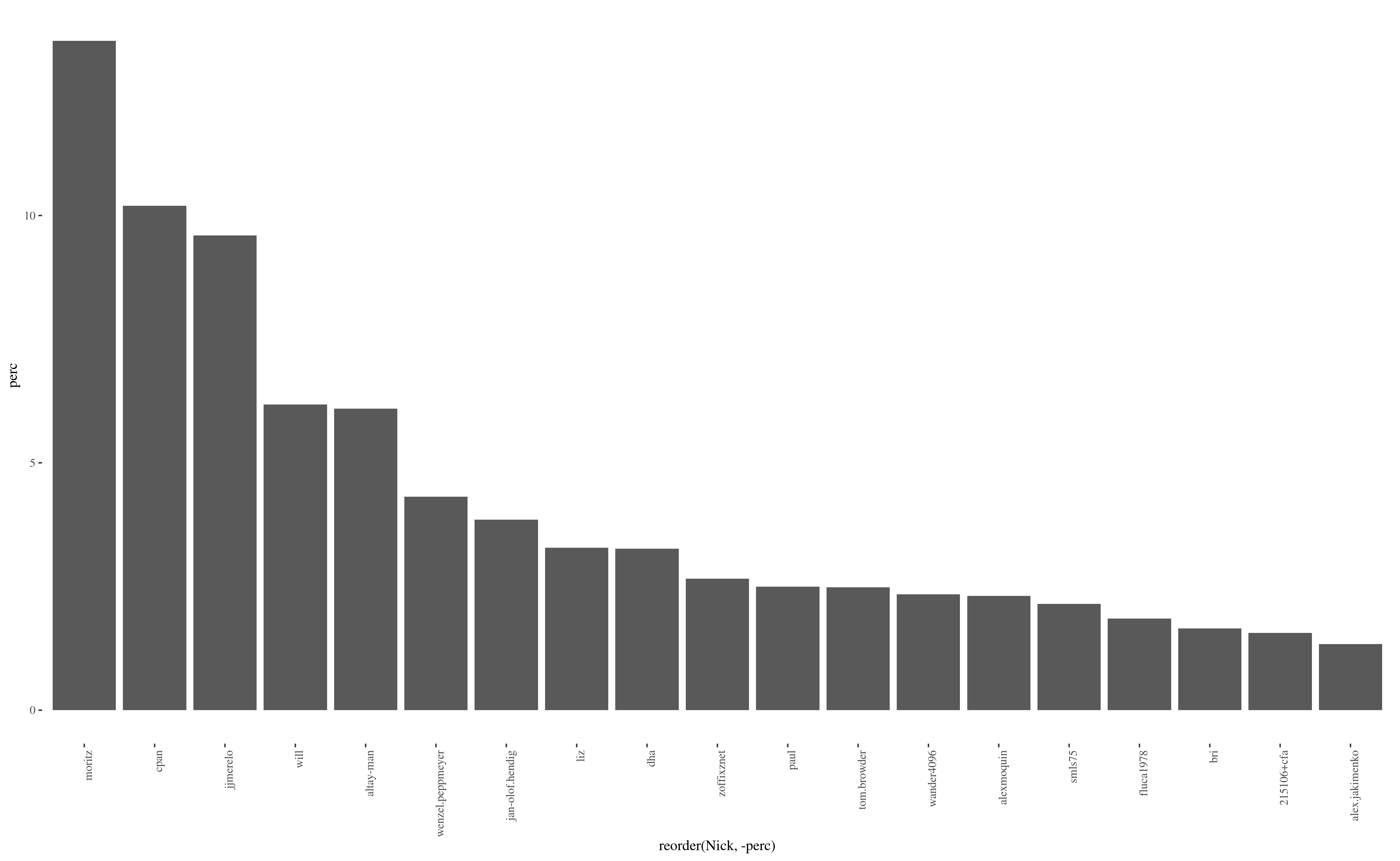
1st in # issues closed
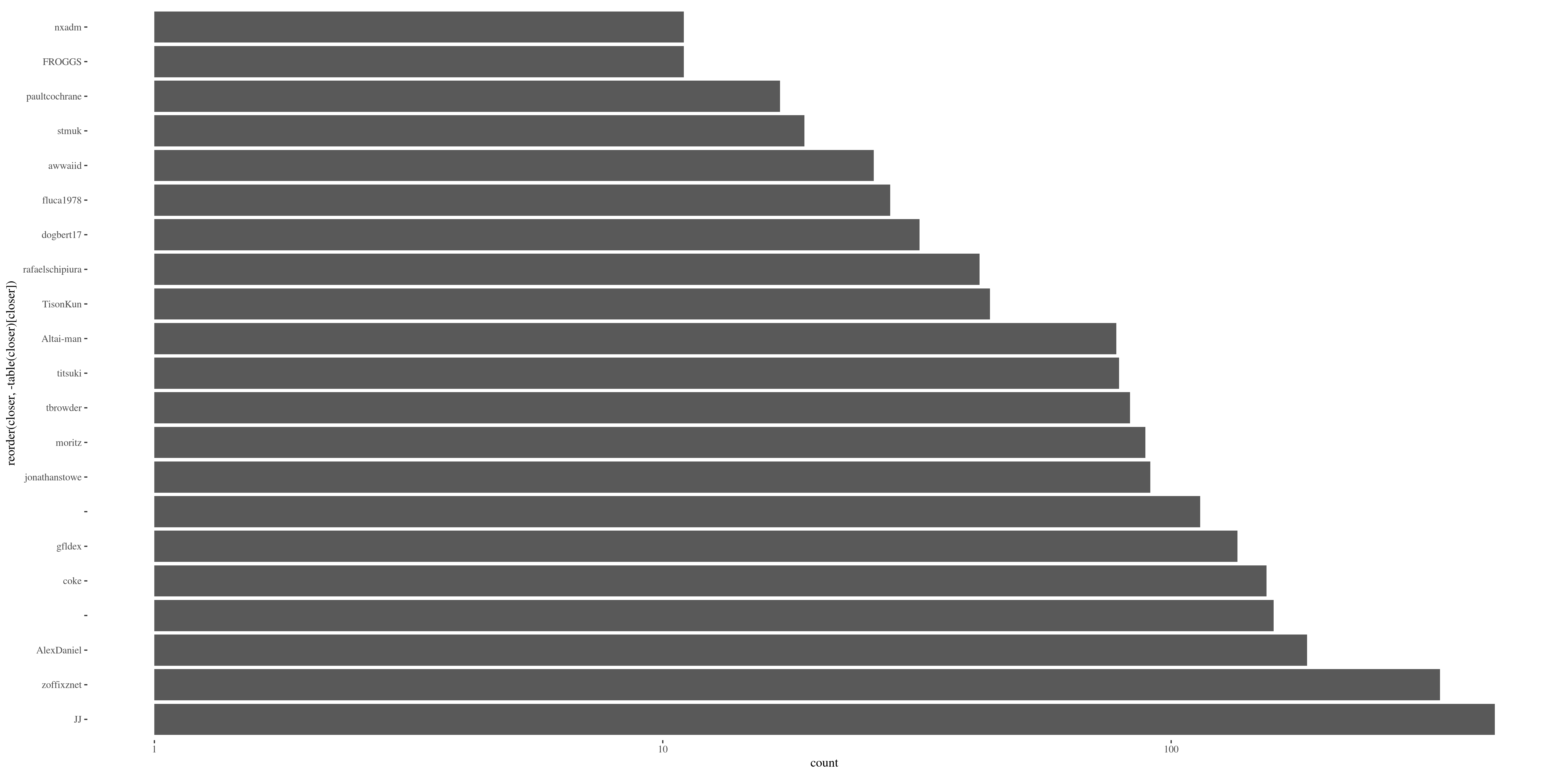
:10things you can learn while working in
the Perl 6 documentation too
Sponsored by The Perl Foundation
What is Perl 6
MoarVM + NQP + Rakudo
+ roast
How many of you would like to work on stuff like...
New languages?
Games?
Documenting a new language?
①
Documenting a language into existence
Documentation is important
Really important
From mr_chromatic
Writing good documentation is difficult and keeping it current is time consuming, but it helps get and keep users even if library support, performance, platform support, and community size all need improvement.
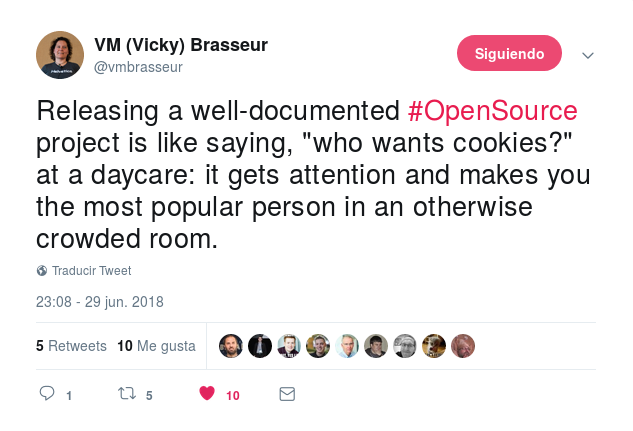
The community speaks
②
Thinking about dinosaurs
Don't want to see my Perl 6
dinosaurs after
:10years
③
Second thing I learned
Perl 6
Using a pet project to learn a language
Docs aren't written by those who know
But by those who can
grammar HasOur {
token TOP {
:our $our = 'þor';
$our \s+ is \s+ mighty
}
}
say HasOur.parse('þor is mighty');
say $HasOur::our;And you can see the dinosaur right there

But I also learned...
Every other language in the world
awk
my $fixer = Proc::Async.new('awk',
'BEGIN {print "!"} {print "^" gsub(/[\\:]/,"",$0)}',
$input-file);④
There are infrequently asked questions
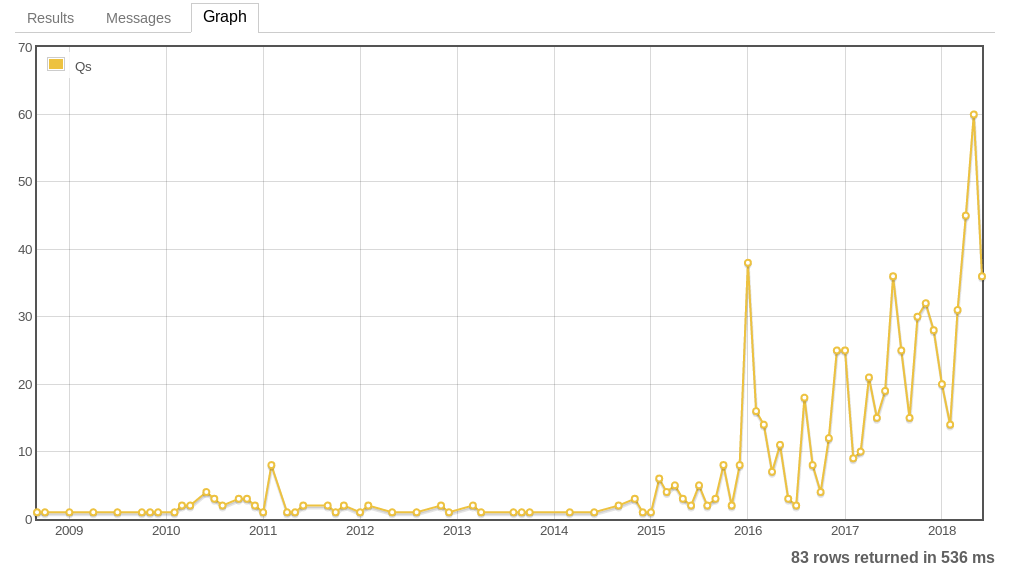
Go and ask in StackOverflow!
+ Anwer + Upvote
⑤
! lazyness
! impatience
! hubris
!lazy ==
eager?
my @lazy-array = lazy 1, 11, 121 ... 10**100;
say @lazy-array.is-lazy; # OUTPUT: «True»
say @lazy-array[]; # OUTPUT: «[...]»
my @no-longer-lazy = eager @lazy-array; # Forcing eager evaluation
say @no-longer-lazy.is-lazy; # OUTPUT: «False»
say @no-longer-lazy[];! Laziness eq 「Diligence」
! Hubris
$hubris ≅ 0
git whatchanged --author="[Mm]erelo" --diff-filter=A \
--no-commit-id --name-only | wc
30 30 720my \U = 'a'..'z'.Set;
sub postfix:<⁻>(Set $a) { U ⊖ $a }
my @sets;
@sets.push: Set.new( @alphabet.pick( @alphabet.elems.rand))
for @alphabet;
my ($de-Morgan1,$de-Morgan2) = (True,True);
for @sets X @sets -> (\A, \B){
$de-Morgan1 &&= (A ∪ B)⁻ === A⁻ ∩ B⁻;
$de-Morgan2 &&= (A ∩ B)⁻ === A⁻ ∪ B⁻;
}
say "1st De Morgan is ", $de-Morgan1;
say "2nd De Morgan is ", $de-Morgan2;⑥
Flow with the documentation
Is it documentable?
Synopsis
→ Roast
→ Rakudo
Document it!
GitHub
→ Rakudo
→ Roast
We don't want it perfect
We want it there
Is this perfect?
my @regex-check = ( /<alnum>/, /<alpha>/, /<punct>/ );
say @regex-check.map: "33af" ~~ *;
# OUTPUT: «(「3」 alnum => 「3」 「a」 alpha => 「a」 Nil)»⑦
Documentation =~= cooking
Better there (slightly charred) than order pizza
class Cook {
has @.utensils is rw;
has @.cookbooks is rw;
method cook( $food ) { return "Cooking $food"; }
method clean_utensils {
return "Cleaning $_" for @.utensils;
}
multi method gist(Cook:U:) { '⚗' ~ self.^name ~ '⚗' }
multi method gist(Cook:D:) {
'⚗ Cooks with ' ~ @.utensils.join( " ‣ ") \
~ ' using ' \
~ @.cookbooks.map( "«" ~ * ~ "»").join( " and ") }
}
Cooks will cook
my $cook = Cook.new(
utensils => <spoon ladle knife pan>,
cookbooks => ['Cooking for geeks','The French Chef Cookbook']);
say Cook.gist; # OUTPUT: «⚗Cook⚗»
say $cook.gist;
# OUTPUT: «⚗ Cooks with spoon ‣ ladle ‣ knife ‣ pan using
# «Cooking for geeks» and «The French Chef Cookbook»»⑧
We are in a complex system
Sankey diagram
Zipf is the law
Ducks do complex
say [[1, 2, [3, 4]], [[5, 6, [7, 8]]]].duckmap:
-> $array where .elems == 2 { $array.elems };
# OUTPUT: «[[1 2 2] [5 6 2]]» Toes
⑨
JJ broke everything!
Ⓧ
Languages are people
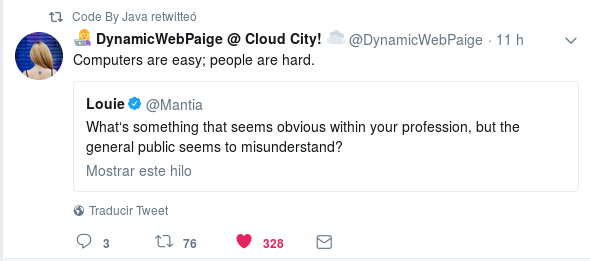
They have class
=begin code :preamble<class Person {
has Int $.age;
has Str $.name;
method set-name-age( $!name, $!age ) {}
};
my Person $person .= new;
>
set-name-age $person: 'jane', 98; # Indirect invocation
=end codeProgramming is solving problems
Our problem → attract and keep a community
Make better code → become a better person
Big
Huge
sub thank( *%args) { say "Thanks ", %args }; thank :from('♥') OUTPUT: «Thanks {from => ♥}»